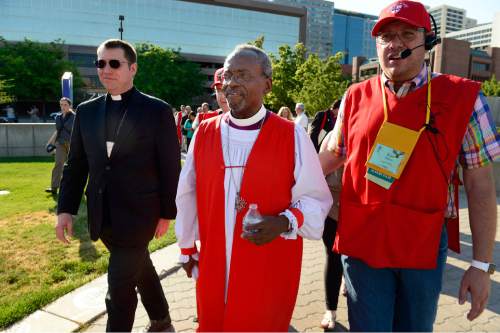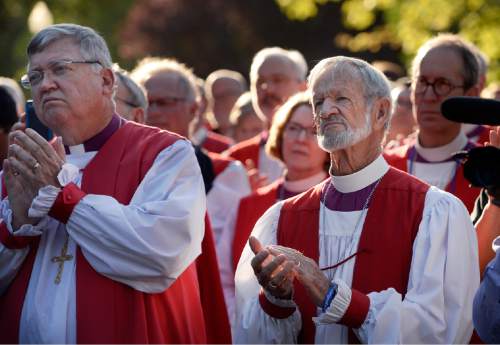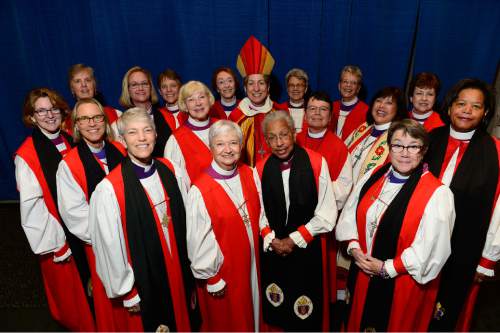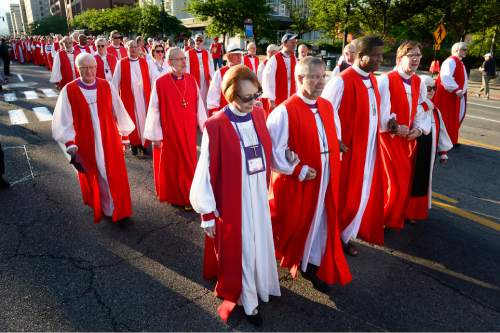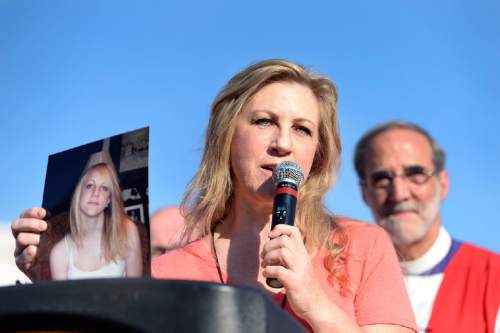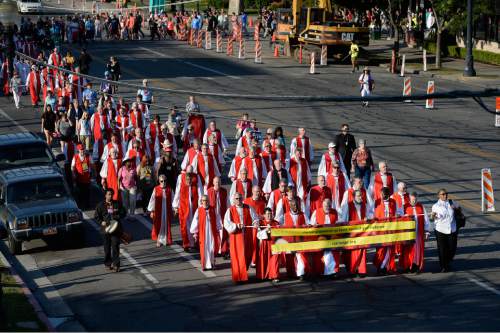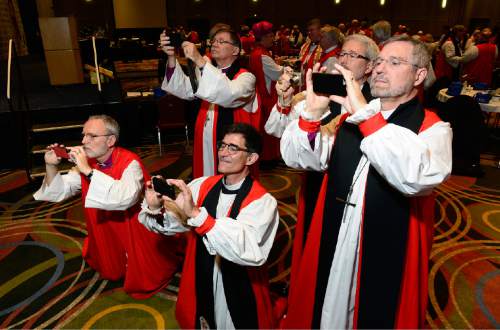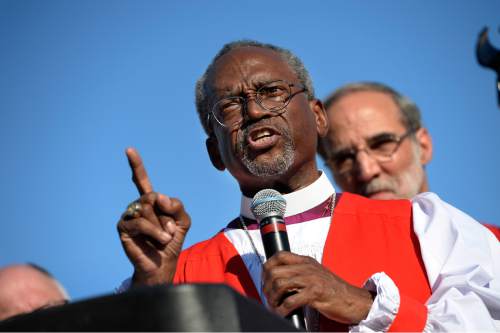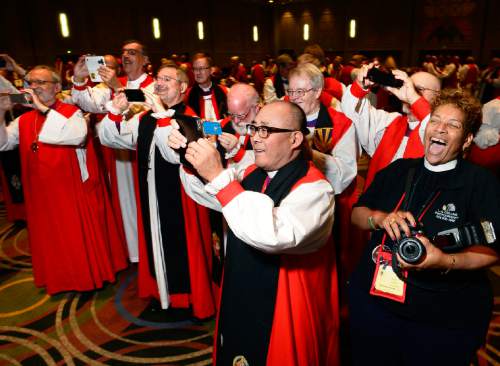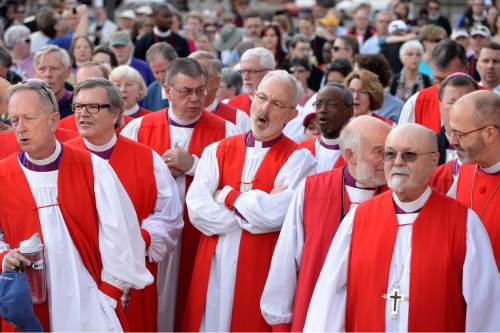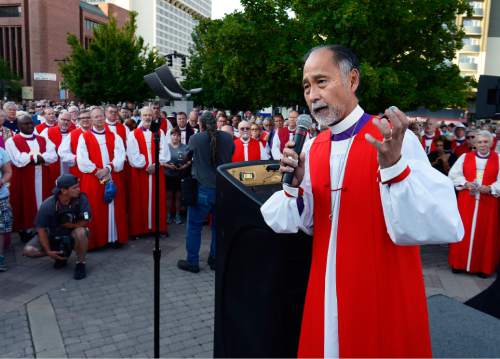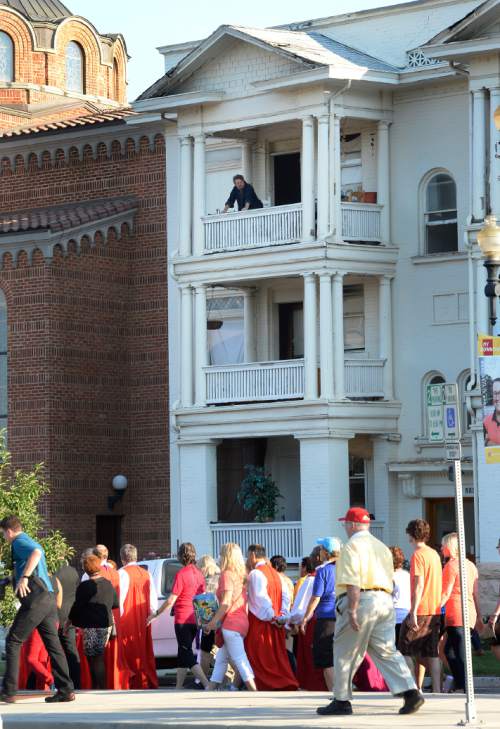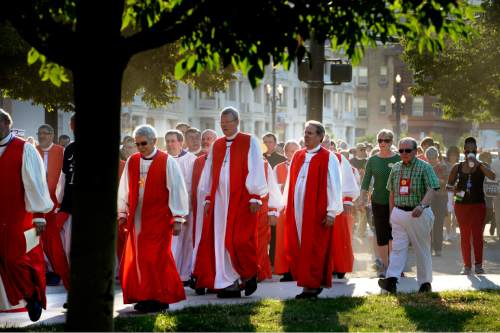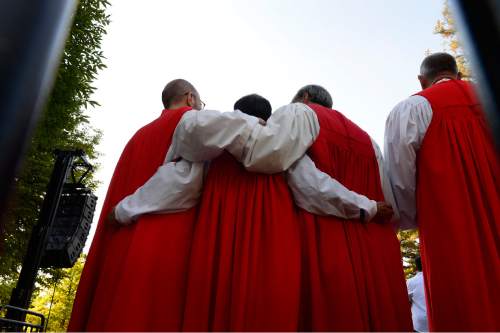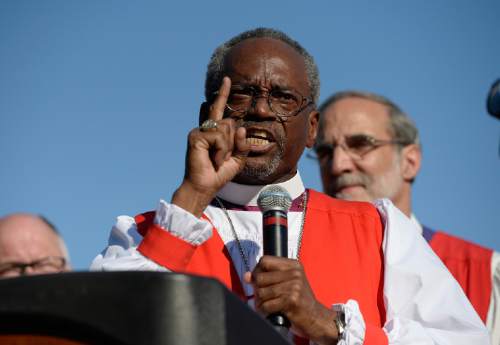This is an archived article that was published on sltrib.com in 2015, and information in the article may be outdated. It is provided only for personal research purposes and may not be reprinted.
The last thing Carolyn Tuft's daughter said to her was: "Get down, Mom."
On Feb. 12, 2007, Tuft and her 15-year-old daughter, Kirsten Hinckley, went to Trolley Square in Salt Lake City to buy a Valentine's Day card. It turned out to be the worst day of Tuft's life.
As the seasons change and each year passes on to the next, Tuft has never stopped feeling the pain of that unforgettable day, when Sulejman Talovic killed Hinckley and four others during a shooting rampage inside the mall.
Talovic, 18, was also killed that night, by police.
The last words Hinckley uttered changed her mother's life and mission. Tuft has since become an advocate against gun violence.
Tuft told her story to a crowd of about 2,000 people Sunday at the Episcopal Church's Bishops United Against Gun Violence march.
"Carrying more guns isn't the solution," Tuft said. "I lost my business, my livelihood and my youngest child."
Tuft joined other speakers and more than 60 Episcopal bishops at the Episcopal Church's Triennial General Convention, which goes through July 3 in Salt Lake City.
Bishop Scott Hayashi of Utah survived a gunshot wound he sustained during a robbery of the store where he worked as a teenager. He told the crowd that every life has meaning and value.
"God values every human life," Hayashi said. "Because every human life matters."
On their 1-mile route to Pioneer Park, marchers carried large, colorful signs that read "Black lives matter" and "Not one more." They chanted "God did not make death" and responded, "Nor does God delight in the death of the living."
Bishop Eugene Taylor Sutton of the Episcopal Diocese of Maryland said they'd assembled in mourning, but also to try to "seek common ground."
"It must stop. It's an unholy trinity of poverty, racism and violence."
Sutton said that in four of his neighborhoods in Baltimore, the life expectancy is lower than it is in North Korea.
Utah has not been immune to gun violence. According to a Tribune database of Utah homicides, about 64 percent of 2014's homicide victims died from shootings.
Charles Graves IV — a native of Baltimore and a recent graduate of the Berkeley Divinity School at Yale — said he came to the conference with his church to demonstrate the issues of gun violence, peace and Israel and Palestine.
"I'm a 25-year-old black man from Baltimore," he said. "In some neighborhoods of my city, there's so much gun violence that the life expectancy of a black male is about 25 years, so I'm a living testament."
Sutton also spoke about the June 17 shooting in Charleston, S.C., where Dylann Storm Roof allegedly killed nine people inside the Emanuel African Methodist Episcopal Church, including the church's pastor.
"People are using violence to take out their frustrations on life," Sutton said. "Dylann Roof was a troubled young man. He was poor. He was poorly educated with limited job prospects. He had the ability to buy a firearm. A poor man with a racist ideology."
The Rev. Gayle Fisher- Stewart of the Episcopal Diocese of Washington, who also is a retired police officer, spoke about how members of law enforcement have played a part in the nation's violence.
"Police officers think they are the law," Fisher-Stewart said. "They forget that they are the people representing the law."
As a retired officer, Fisher- Stewart is entitled to carry a weapon, but said she chooses not to.
"The word of God is my weapon," she said.
Twitter: @ShaheedMo


